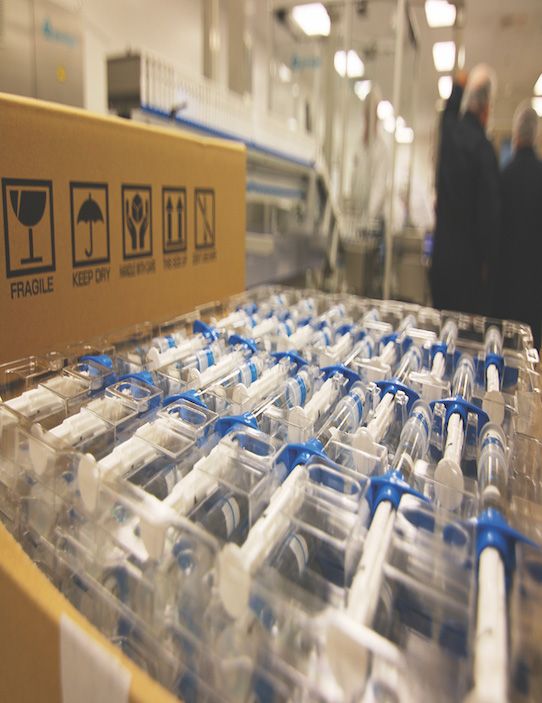Drone delivery of medical products takes flight in Rwanda
UPS, GAVI and Zipline collaborate on a national delivery system
Following through on an initiative announced earlier this year, a delivery-by-drone program has now been established in Rwanda, where the combination of the expense of stocking valuable medical products widely, combined with poor logistics, makes economic sense for use of the technology. The drone devices were developed by a California company, Zipline; UPS provided initial funding and ongoing technical support, and GAVI, the vaccines alliance charity, is supporting the effort with a view toward expanding it to other regions.
The effort might be the world’s first to deliver healthcare products to clinics on a routine basis. An infrastructure (launch and landing stations, plus the aircraft) is being set up to deliver as many as 150 emergency deliveries per day to 21 transfusing stations in the western region of the country. The initial goals are to address the needs of patients with postpartum hemorrhaging, a leading cause of death for pregnant women. Blood requires storage and transport at safe temperatures and spoils quickly. Because there are many different blood products and no way to accurately project future needs, many transfusion clinics do not keep all the blood they may need in stock.
The Zipline craft can carry up to 1.5 kg of product and have a 150-km round-trip range. Plans are in place to expand the network (currently based in the Muhanga District); deliveries to the eastern region will begin in 2017. “We are happy to be launching this innovative technology and to continue working with partners to develop it further," said Rwandan President Paul Kagame, at a recent ceremony.
Drones (or “unmanned aerial vehicles,” UAVs) are all the buzz in logistics circles, most notably with Amazon’s efforts to use them commercially to make deliveries. Both UPS and DHL have performed earlier pilot projects, but the UPS undertaking seems to be the first with regular, ongoing service. In announcing the Rwanda undertaking, UPS also noted that it has run delivery tests in the US, is a member of a newly established FAA Drone Advisory Committee, and has experimented with using drones inside its warehouses to check high storage racks.
